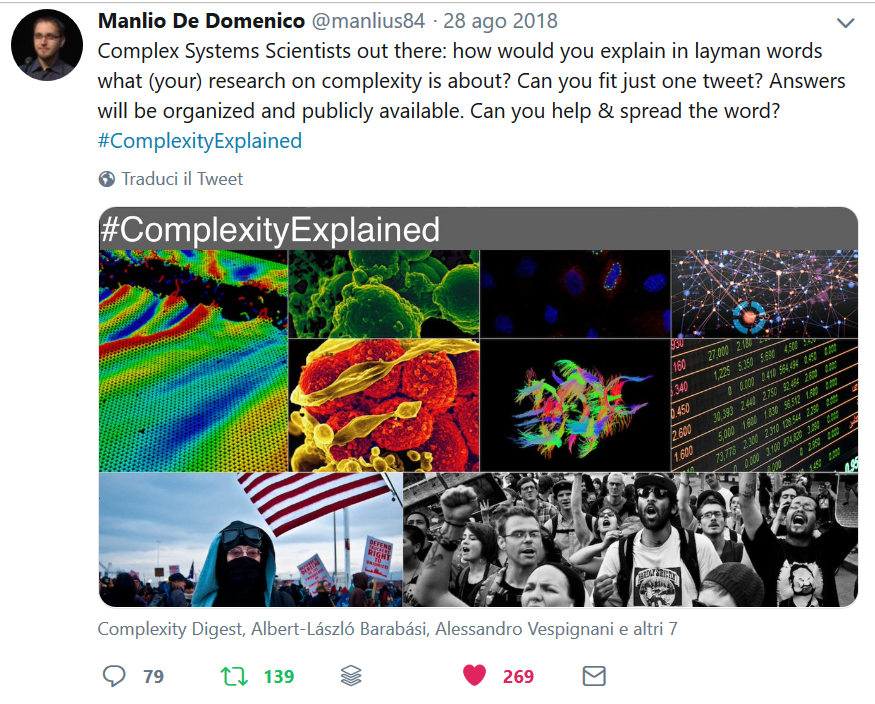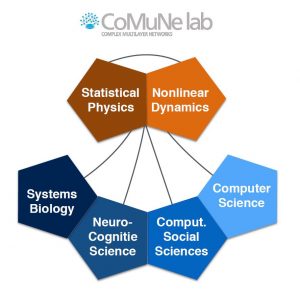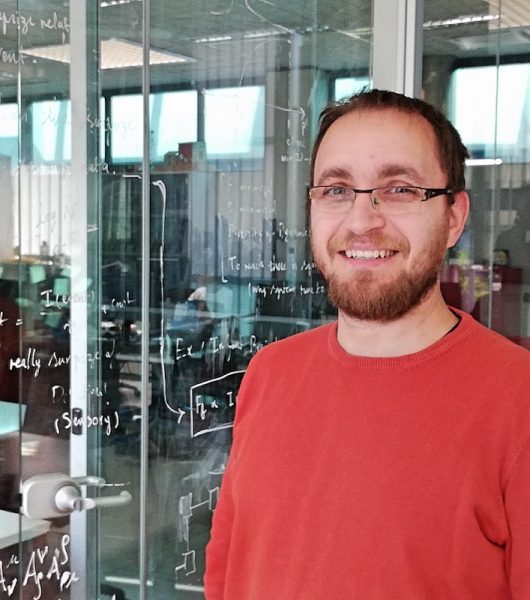Will the 21st century be the century of complexity?
The attention to the study of complex systems is growing in the world and also in Italy. We asked Manlio De Domenico to describe the meaning of this emergent science from his point of view, being part of one of the most vibrant academic network focused on these approaches and topics
In 2018 Manlio De Domenico launched a thread via twitter to invite peers to contribute to an open discussion in order to come to a definition of what is the science of complexity from different points of view.

That important interaction involved many scientists coming from a wide range of disciplinar backgrounds and raising more than 82 thousands visualizations and 2 thousands interactions.
Here follows just a couple of examples:
Complexity science is a new approach to science based on systems theory, network theory, nonlinear dynamics etc. it uses various computational methods such as agent-based modeling, cellular automaton & network analysis to study complex systems, e.g. cities, ecosystems, societies. (@Complexity_Labs)
I suppose complex systems always exhibit unexpected behavior. We can have a simple system, like the double pendulum that generates complicated behavior, we can also have a flock of birds with tons of degrees of freedom and simple patterns emerge. Both patterns are unexpected. (@DirkBrockmann)

The final result has been a document that summerize what are the key points:
- Complex systems consist of many components interacting with each other and their environment in multiple ways.
- Properties of complex systems as a whole are very different, and often unexpected, from properties of their individual components.
- Complex systems tend to change their states dynamically, often showing unpredictable long-term behavior.
- Complex systems may self-organize to produce non-trivial patterns spontaneously without a blueprint.
- Complex systems may adapt and evolve.
- Complexity science can be used to understand and manage a wide variety of systems in many domains.
- Mathematical and computational methods are powerful tools to study complex systems.
Moreover, Manlio De Domenico remarks that grounded approaches go beyond classical machine/deep learning, they don’t merely find patterns: they help us understand fundamental mechanisms.

The First Italian Regional Conference on Complex Systems is the flagship event of CSS/Italy to promote the dissemination of Complexity Science and interdisciplinary scholarly exchange for complex systems researchers and practitioners in Italy.
CCS/Italy 2019 will focus on cutting edge research topics with high societal impact from the perspective of Complexity Science. Special attention will be given to facilitating the professional growth of students, postdocs and early-career faculty in the Italian territory.
The Conference will be held in the Center for Information and Communication Technology at Fondazione Bruno Kessler (Povo, Trento). Sponsored by FBK, University of Trento and University of Padova.

